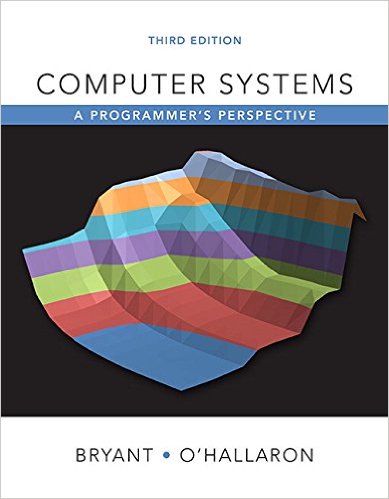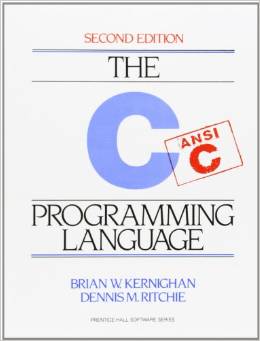| Date | Topic | Slides | Assignment |
| Sep 28 (week 1) |
Introduction, Course Expectations
The C Programming Language Reading: Kernighan and Ritchie, Ch 1-4 |
|
|
| Sep 30 |
The C Library, GDB
Reading: Bryant and O'Hallaron, Ch 1, Ch 7 Reading: Kernighan and Ritchie, Ch 7 |
|
|
| Oct 5 (week 2) |
Computer System Organization
Reading: Bryant and O'Hallaron, Ch 7 |
|
|
| Oct 7 |
Data Representation
Reading: Bryant and O'Hallaron, Ch 2.1-2.2 |
|
|
| Oct 12 (week 3) |
Arithmetic and Floating Point representation
Reading: Bryant and O'Hallaron, Ch 2.3-2.5 |
| HW 1 Due |
| Oct 14 |
Data Access and Operations
Reading: Bryant and O'Hallaron, Ch 3.1-3.5 |
|
|
| Oct 19 (week 4) | Data Access and Operations |
| HW 2 Due |
| Oct 21 |
Midterm Exam
- closed book, closed notes, no electronics
Covering: Kernighan and Ritchie, Ch 1-4,7 Covering: Bryant and O'Hallaron, Ch 1-2,7 |
|
|
| Oct 26 (week 5) |
Control Flow
Reading: Bryant and O'Hallaron, Ch 3.6 |
|
|
| Oct 28 |
Procedures
Reading: Bryant and O'Hallaron, Ch 3.7 |
|
|
| Nov 2 (week 6) |
Pointers and Arrays
Reading: Bryant and O'Hallaron, Ch 3.8 Reading: Kernighan and Ritchie, Ch 5.1-5.10 | HW 3 Due | |
| Nov 4 |
Structures, function pointers
Reading: Bryant and O'Hallaron, Ch 3.9-3.10 Reading: Kernighan and Ritchie, Ch 5.11, 6 |
|
|
| Nov 9 (week 7) |
Optimizing program performance
Reading: Bryant and O'Hallaron, Ch 5 |
|
|
| Nov 11 |
Veteran's Day - No Class
Optimizing program performance, Embedded Assembly |
|
|
| Nov 16 (week 8) |
Cache memories
Reading: Bryant and O'Hallaron, Ch 6 | HW 4 due | |
| Nov 18 | Cache memories |
|
|
| Nov 23 (week 9) |
Exceptional control flow (1)
Reading: Bryant and O'Hallaron, Ch 8 |
|
|
| Nov 25 | Exceptional control flow (2) |
|
|
| Nov 30 (week 10) |
Not covered, not on exam
x86-64, SIMD, ARM Reading: Bryant and O'Hallaron, Ch 3.11, 3.13, 3.14 |
| HW 5 Due |
| Dec 2 | Optional make-up lecture / Exam review |
|
|
| Dec 2 | Case Study: Arduino and the AVR Processor |
|
|
|
Dec 9
10:15AM - 12:05AM |
Final Exam
- closed book, closed notes, no electronics
Comprehensive: Covering all material |
|
|

 [photos from Amazon.com]
[photos from Amazon.com]
CS 162: Introduction to Computer Science (Programming in C++)We will discuss the "C" language and its implementation in detail. Students should already know the concepts of programming and be familiar with the basics of Unix/Linux and commands like ls, mkdir, cd, pwd, cp, mv, rm, cat, less, man, make, and how to edit text files.
5% - HW 1 5% - HW 2 5% - HW 3 5% - HW 4 5% - HW 5 5% - HW 6 25% - Midterm Exam 35% - FinalI want all students to focus on learning as much as they can from this class and not to stress out over grades.
https://mailhost.cecs.pdx.edu/mailman/listinfo/porterclasslist/The MailMan program will email you a confirmation message. You must reply, but you can simply hit your email "reply" button. After being adding to the mailing list you will get a "welcome" message from me.
PorterClassList@mailhost.cecs.pdx.edu
For additional documentation, see
staff.imsa.edu/~ckolar/mailman/mailman-userguide-0.1.pdf (pdf, 159 kb)(By the way, if Internet Explorer does not work with MailMan on the Mac, use the "Safari" web browser instead.)